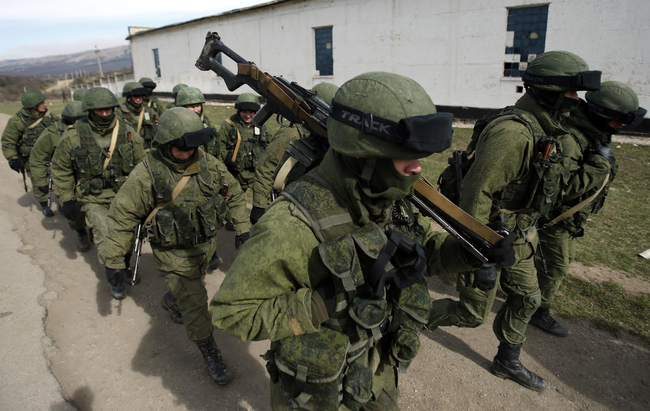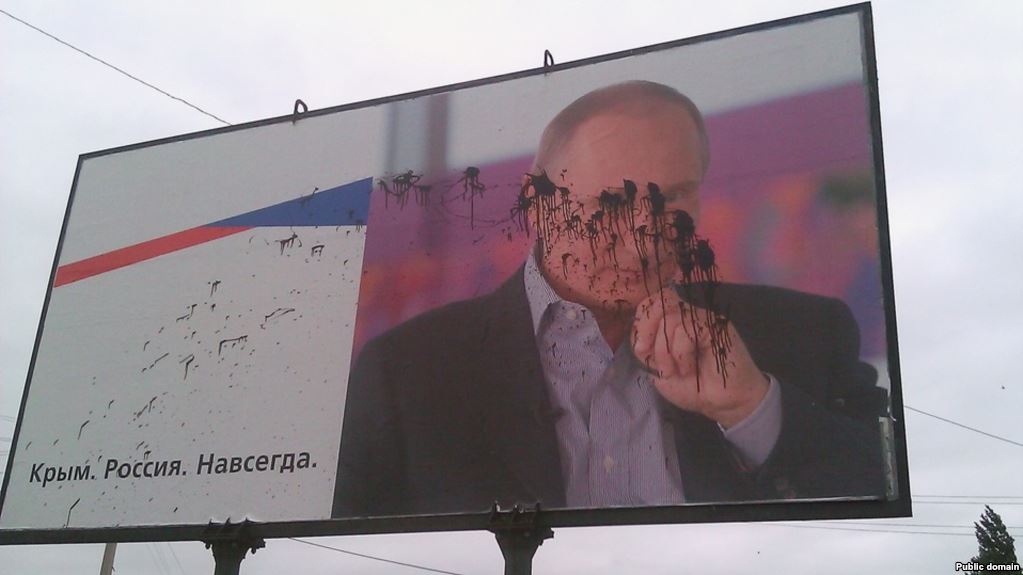The Crimean story of the Vienna-based architecture firm Coop Himmelb(l)au began in January 2019 when the Russian occupation authorities of the Crimean city of Sevastopol bragged to Russian media that the "famous Austrian architectural bureau" created an architectural concept for the new opera house in the Russian-occupied city.

However, at the time architect Wolf D. Prix, the CEO of Coop Himmelb(l)au, was quick to deny the existence of any plans of his firm for Sevastopol, commenting to the Austria Press Agency (APA). He stated that Coop Himmelb(l)au had suggested its project of an opera house for the Russian city of Kaliningrad.
Meanwhile, Russia's National Cultural Heritage Foundation was the organization that ordered both projects. At the same time, the EU-sanctioned Stroygazmontazh company that constructed the Kerch Strait bridge was the main contractor for the Foundation to build the Sevastopol Cultural Quarter, as the Foundation confirmed to the APA.


News of Coop Himmelb(l)au firm's participation in a Crimea-based project resurfaced days ago, as the Ambassador of Ukraine to Austria Oleksandr Scherba in his comment to the Süddeutsche Zeitung newspaper published on 29 November said that now Ukraine is seriously considering introducing sanctions against Wolf Prix personally and his firm.
The Ambassador said that he had called Mr. Prix in early October and tried to persuade him "not to ruin his reputation by participating in this indirect and at the same time unequivocal legitimization of the annexation."
"Unfortunately, he did not listen to my arguments. At this stage, when the rumors are vividly confirmed by the Russian media, I have no choice but to express my regret and inform the architect Prix that Ukraine is seriously studying the issue of imposing sanctions on him and his bureau," said Mr. Shcherba.
Wolf Prix gave his comments to the Süddeutsche Zeitung over the phone the next day. Reminded of famous American architect Philip Johnson, who had openly sympathized with the German Nazi regime and distanced himself from his views only after the outbreak of World War II, Mr. Prix suggested that Johnson would build "for the devil himself." Though Prix "definitely doesn't want to build for Hitler or the devil, and, by the way, not for Stalin either."
And Putin is not his client, "but the Russian Federation."
"It's also about a cultural building and not a barracks," said Wolf Prix, justifying his firm's project in occupied Crimea.

In his phone comment to the Süddeutsche Zeitung Mr. Prix has also said that he sees the whole debate as "somewhat hypocritical" and the "double standards" of criticism have been applied in his opinion.
"I would like to see the one who does not take orders in Crimea and Siberia," said Wolf Prix.
The first Austrian case of this kind
In his comment to Euromaidan Press given via Facebook, Ambassador Oleksandr Shcherba confirmed that it is the first known case of an Austrian company doing business in the occupied peninsula "at such a scale."
"There were cases when Austrian companies were going to start a business in Crimea, but after being contacted by the [Ukrainian] Embassy, they abandoned those plans. At the same time, it must be admitted that none of these projects was such a "fat slice" as what is obviously offered to the Austrian architects [of Coop Himmelb(l)au]. They are selling their reputation not cheaply," said Mr. Shcherba.
The Ambassador called the architect Prix's arguments mentioned by the Süddeutsche Zeitung "a bit strange."
"What difference does it make who is the customer - the Russian Federation or President Putin? The project of building an opera house is, first of all, a large-scale construction project with a clear ideological and political dimension," argued Shcherba.
As for Prix's idea that anyone would accept orders in Crimea and Siberia, Oleksandr Shcherba noted,
"What does Siberia have to do with it? Siberia has not (yet) been annexed."
Asked if the architecture firm can sustain any losses other than reputational when sanctioned by Ukraine, especially from the EU side, Ambassador Shcherba replied,
"As far as I know, this issue is currently being discussed with our friends in the European Union."
Are sanctions being violated?
In response to Russia's 2014 invasion and annexation of the Ukrainian region of Crimea, the US and the EU imposed sanctions on Russia. Other countries including Japan, Australia, and Canada joined the non-recognition policy for Crimea and sanctioned Russia as well.
But do the EU's Crimean sanctions apply to the case of the opera house? If we look at the surface, it seems the answer is no.
The European Council adopted several types of sanctions in relation to the occupation of Crimea - diplomatic measures, personal sanctions - (asset freezes and travel bans), restrictions on economic cooperation with Russia, some general economic sanctions on Russia (such as an export and import ban on arms trade and an export ban for dual-use goods), and restrictions on economic relations with Crimea and Sevastopol.
- prohibit importing goods from Crimea and Sevastopol to the EU;
- restrict trade and investment in Crimea and Sevastopol (meaning that no Europeans nor EU-based companies can buy real estate or entities in Crimea, finance Crimean companies or supply related services);
- prohibit tourism services in Crimea or Sevastopol;
- and ban exports for certain goods and technologies to Crimean companies or for use in Crimea in the transport, telecommunications and energy sectors and related to the oil, gas, and mineral resources exploration and procurement. Also banned is any technical assistance, brokering, construction, or engineering services related to infrastructure in these sectors.
So, the existing sanctions prohibit giving construction services to entities based in Crimea, but only in infrastructure related to transport, telecommunication, energy, and minerals.
But what about Stroygazmontazh, the company previously owned by Russian businessman and President Vladimir Putin's personal friend Arkady Rotenberg? Both Rotenberg and Stroygazmontazh were sanctioned by the USA and, on 30 July 2018, the EU; and cooperating with sanctioned entities is prohibited.
Notably, in October 2019, the contractor for the opera house was changed from Stroygazmontazh to Stroytransgaz. a company that is controlled by Gennadiy Timchenko, another friend of Vladimir Putin. Just weeks later, Rotenberg lost control of Stroygazmontazh: it was sold to the unknown non-public joint-stock company "Stroyinvestholding," amid persistent rumors that Gazprom would be the new owner of one of its largest subcontractors.
Stroytransgaz and its owner were sanctioned by the USA but not the EU. Possibly, the abrupt change of contractor in the opera house project was made because cooperation with the EU-sanctioned Stroygazmontazh could have led to criminal consequences for European partners.
But that doesn't mean Stroytransgaz is without controversy. According to sources of Forbes, even though Stroytransgaz was not sanctioned by the EU, its presence in the US sanctions list was enough to make European partners "uncomfortable" and led to the company losing
its contract in the South Stream gas pipeline.
It appears that as the National Cultural Heritage Foundation acted as an intermediary between Coop Himmelb(l)au and Stroygazmontazh, sanctions are again evaded.
"Strictly speaking, they are walking a thin line and really don't violate anything, as there was no direct contact. These are activities in the grey zone, where everything is obvious, but it's impossible to prove anything legally. The EU adopted targeted sanctions, meaning that Europeans don't completely break off cooperation with Russia, but try to target the most sensitive spots, or the branches of the economy that support policies directed at the violation of Ukraine's territorial integrity," Julia Kazdobina, Head of the Ukrainian Foundation for Security Studies told Euromaidan Press in a written message.
Could Ukraine use this case to urge the EU towards adopting new sanctions, directed at cases such as the opera house in Sevastopol? Ms. Kazdobina says that is possible but is restrained by Ukraine's inflexible sanction mechanisms that impede a quick response. As well, it is now unclear which state actor should lead the action, as the department in the Ministry of Temporarily Occupied Territories that was actively involved in promoting the adoption of Ukrainian sanctions has been disbanded.
"Also, it is not very clear whether foreigners would agree to impose sanctions in such a case. As far as I know, there is no practice of imposing sanctions on cultural institutions," Ms. Kazdobina summed up.
Earlier Crimean cases
Coop Himmelb(l)au is not the first EU-based company involved in projects in Russian-occupied Crimea. Back in 2017, four gas turbines produced by the German company Siemens and allegedly destined for use at power stations in Russia's Taman ended up in Crimea. Siemens sued the Russian companies involved in transferring the machinery to the occupied peninsula.
The same year two Dutch companies violated EU sanctions by building the equipment which Russia used to build the bridge to occupied Crimea over the Kerch Strait.
Crimea isn't a flight destination for international airlines due to international sanctions. However, several Russian companies conduct regular flights to Simferopol, and a journalistic investigation found. that Lufthansa-affiliated company provides catering services at the flights of Russia's Aeroflot to occupied Crimea.
The Black Sea News web site maintains a database of foreign vessels that call the Crimean ports officially closed by Ukraine, however, actively exploited by Russia. Among various Russian, Togolese, Mongolian, and other ships, several vessels that had visited the Crimean ports after the annexations, had the registration in EU countries, such as Greece, Malta, and Bulgaria.
Read more:
- Sanctions on Russia are working, but they're not enough
- Boosting the price of aggression. Ukraine updates its sanctions policy against Russia
- NGOs to push for sanctions on 29 Crimea-based enterprises and their 60 Russian collaborators
- Scandal as Dutch companies help build bridge to occupied Crimea, violating sanctions
- US non-recognition policy regarding Crimea one year on
- Company that brought “little green men” to Crimea violated EU sanctions for four years: investigation
- Ukraine’s water blockade of Crimea should stay, because it’s working
- How Siemens chose to ignore the obvious. An investigation into the Crimean sanctions break (2017)
- Powering the Anschluss. How Siemens turbines ended up in Crimea despite sanctions





